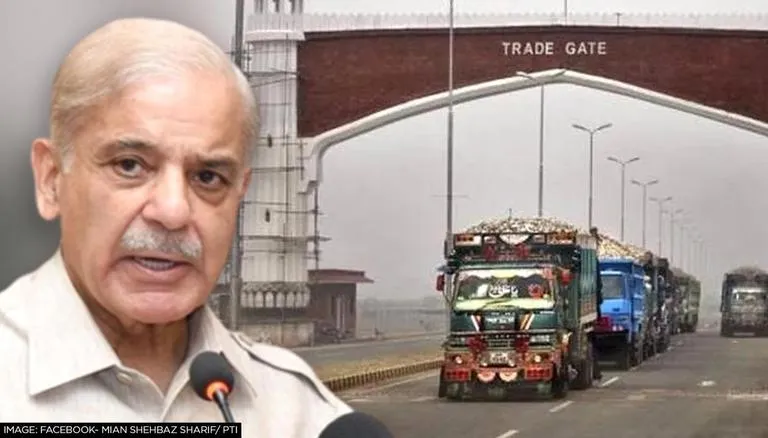Cash-strapped Pakistan’s trade deficit has surged to an all-time high of USD 48.66 billion in the outgoing fiscal year, up from USD 30.96 billion a year ago, a significant 57 per cent jump on the back of higher-than-expected imports, a media report said on Sunday.
The trade deficit reached an alarming level despite a ban on more than 800 non-essential luxury items in May by the Shehbaz Sharif government, the Dawn newspaper reported, quoting the provisional official data.
Pakistan’s trade gap widened by more than 32 per cent to touch USD 4.84 billion in June, from USD 3.66 billion a year ago, driven largely by almost double the increase in imports compared to exports, the paper said. The outgoing fiscal year’s trade deficit has crossed the USD 37 billion figure in 2017-18, which was largely led by imports related to the China-Pakistan Economic Corridor.
In the subsequent years, the trade gap dropped to USD 31.8 billion in 2018-19 and then to USD 23.2 billion in 2019-20, before bouncing back to USD 30.8 billion in 2020-21 and finally to a whopping USD 48.64 billion in the 2021-22 fiscal, according to official data.
The outgoing year’s trade deficit is propelled by the highest-ever increase in oil prices and commodities in the international market due to the supply chain disruptions brought about due to the ongoing war in Ukraine. The trade deficit has been on the rise owing to an unprecedented increase in imports due to a rise in global commodity prices, while exports have stagnated to around USD 2.5 billion to USD 2.8 billion a month, mostly those of semi-finished products and raw materials, the paper added.
Pakistan’s import bill increased 43.45 per cent to USD 80.51 billion during 2021-22, up from USD 56.12 billion, just a year ago.
Last week, the Pakistan government steeply hiked petroleum prices to implement the tough preconditions set by the International Monetary Fund (IMF) to revive the stalled USD 6 billion bailout package for the cash-strapped country.
Prices of all petroleum products went up by about Rs 14-19 per litre after the decision came into effect from midnight on Thursday.
This was the fourth hike in petroleum under the incumbent government assumed power in April.
The IMF has set tough preconditions like hiking electricity tariffs and imposing a levy on petroleum products to revive the stalled bailout programme.
The global lender also asked Pakistan to set up an anti-corruption task force to review all the existing laws that were aimed at curbing graft in the government departments.
After implementing the conditions, the IMF would present Pakistan’s request for the approval of the loan tranche and revival of the programme to its executive board – a process that may consume another month.
Pakistan is facing growing economic challenges, with high inflation, sliding forex reserves, a widening current account deficit and a depreciating currency.
On June 22, Pakistan secured a deal with the IMF to restore the stalled USD 6 billion assistance package and unlock doors for financing from other international sources.
The make-or-break deal was reached following the IMF staff mission and the Pakistani team, led by Finance Minister Miftah Ismail, agreeing on an understanding on the 2022-23 budget after the authorities committed to generate Rs 43,600 crore more taxes and increase petroleum levy gradually up to Rs 50 per litre, according to the paper.
The extended fund facility package of USD 6 billion was agreed upon in July 2019 for a period of 39 months. So far only half of the promised money has been reimbursed.
The revival of the facility will immediately provide access to USD 1 billion, which Pakistan badly needs to buttress its dwindling foreign exchange reserves. PTI SH VM VM

